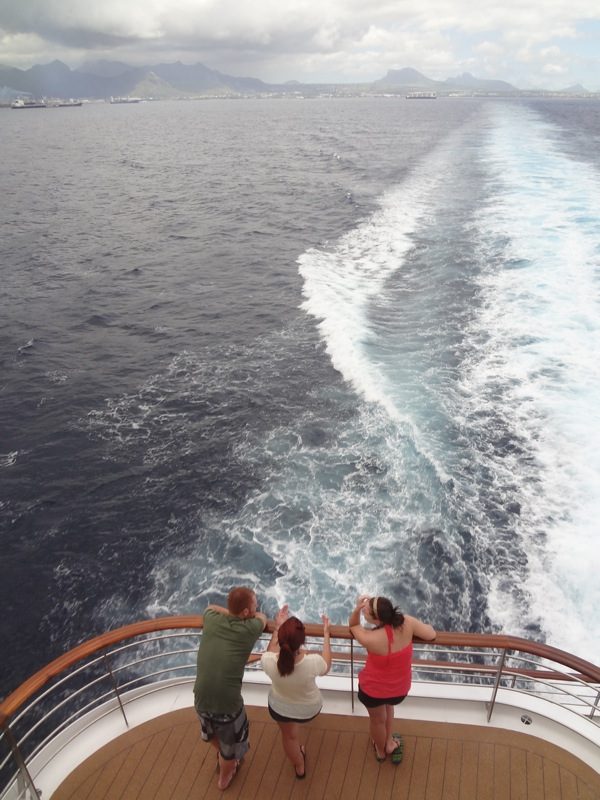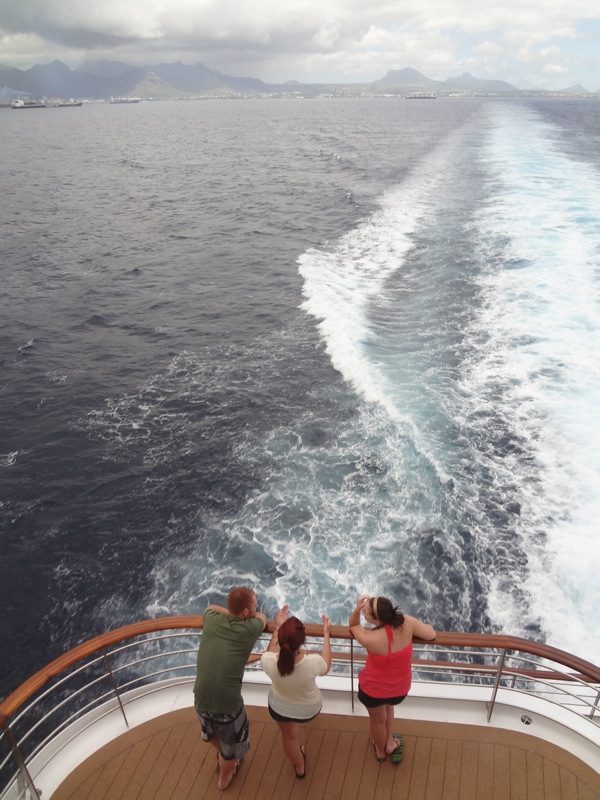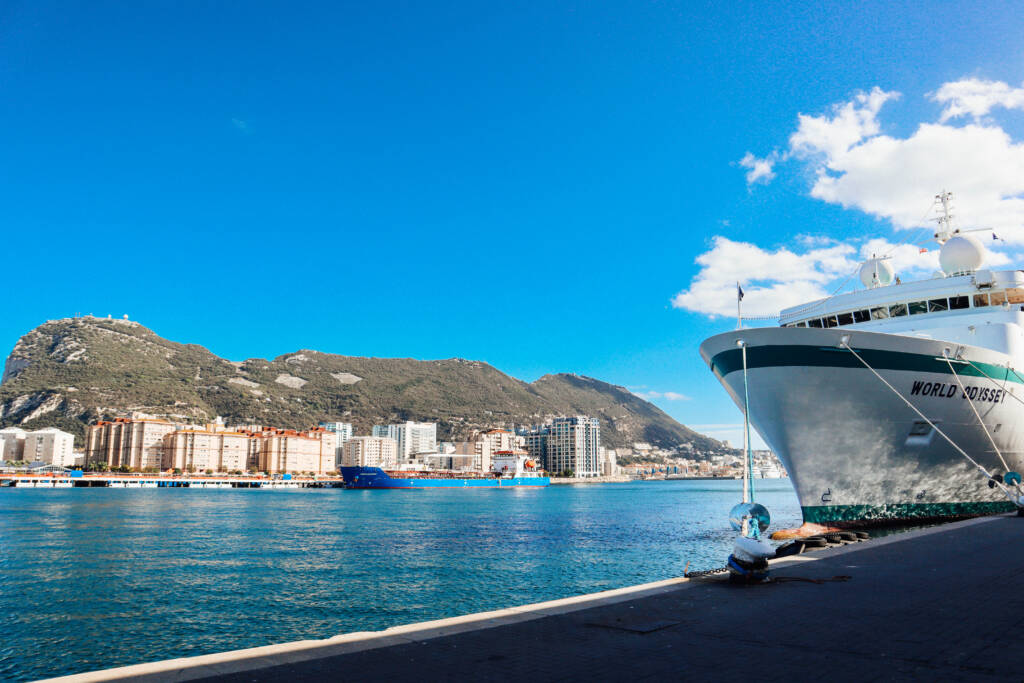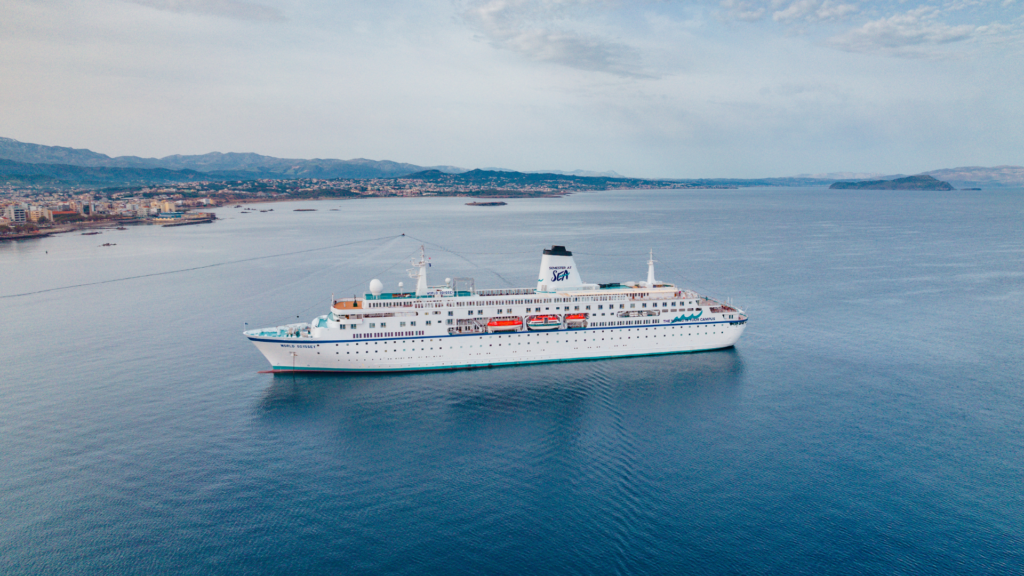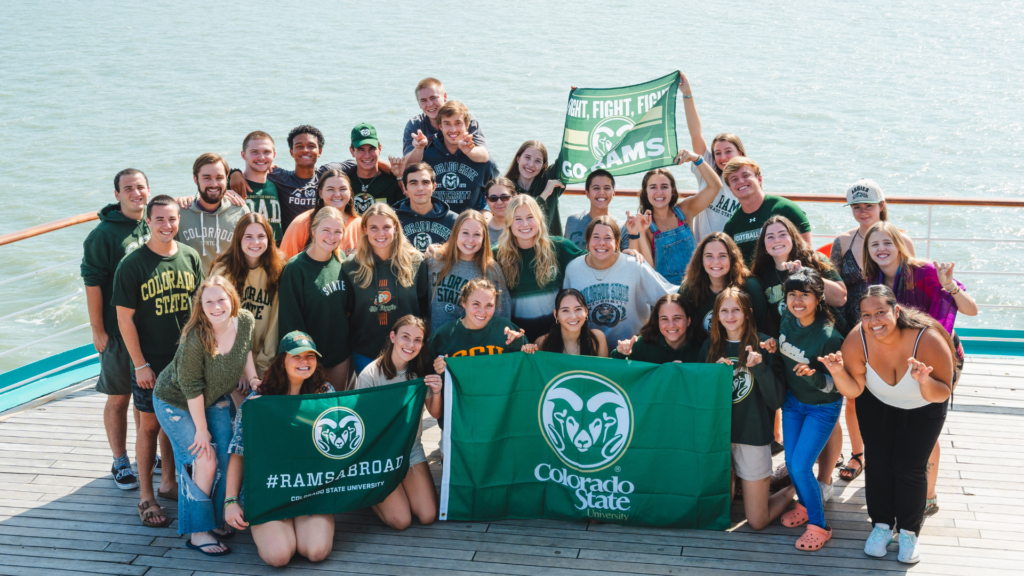The MV Explorer made a brief stop last week in Mauritius and, although students had a short time on shore, the incredible success story of the former British colony has provided plenty of fodder for classroom discussions, especially in the political science classes of Dr. Lew Hinchman.
When Mauritius gained independence in 1968, it faced both a bleak economic future and a powder keg of social conflict. “The chances of Mauritius turning out well were very low,” explained Lew Hinchman, who teaches Introduction to Comparative Politics and Theories of International Relations. “There was severe poverty on one hand and social conflict on the other. Per capita income was a few hundred dollars a year and genuine hunger was a real threat.” Mauritius, however, has surged since independence thanks to what Hinchman calls “a lot of smart decision and a little luck for good measure.” The capital of Port Louis is now the wealthiest city in Africa, and all citizens receive free health care, free university education, unemployment insurance, and, for the 87% of islanders who own their own home (compared to 70% in the USA), there’s state-provided hurricane insurance as well.
Widespread education is just one of the many political tools used to unite the formerly fragmented society. Descendants of 19th century indentured servants make up today’s population, but the ethnic diversity hasn’t yielded the problems common in other nations. Hindis, Muslims, and Afro-Creoles work peaceably in a one-of-a-kind political system described by Hinchman as a “best loser system.” Citizens elect 62 members of Parliament, while the President (not the Prime Minister) appoints the last 8 members from the closest runners-up, dedicating attention to underrepresented populations. It seems unlikely but, like most ideas in Mauritius, it works.
While the politics are fascinating, the economy is even more incredible. Much like Manaus earlier in the voyage, Mauritius also declared itself a tax-free zone. The move to encourage international investment succeeded, and Mauritius has expanded from a one-crop country to a leader in IT, tourism, and textiles. While the rest of the world flounders through a listless economy, the annual GDP of Mauritius has grown by 5 percent during each of the past 30 years and, by 1990, the country had achieved a remarkable, nearly-unheard-of, zero percent unemployment rate. “Their economic secret has always been looking to find new sources of industry to stay ahead of the curve,” Hinchman explained of the nation’s startling success story.
The tiny island of Mauritius, 540 miles off the east coast of Madagascar, rests geographically and culturally between Africa and Asia, making it the perfect destination as the MV Explorer sails from South Africa towards India. If Semester at Sea is educating the leaders of tomorrow, there’s no better place to look than innovative, inspiring Mauritius.
Click here to read Dr. Lew Hinchman’s bio.
